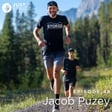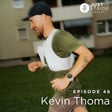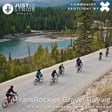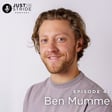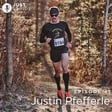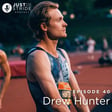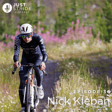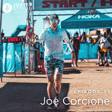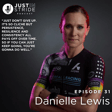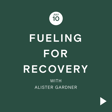
Melanie DesAutels on preparing in Kenya for the Berlin Marathon, winning and defending her title at the Beneva Montreal Marathon, her steady rise in the sport, balancing athletics and life, finding success and staying humble
On today’s episode of Just In Stride, we’re joined by Mélanie DesAutels, two-time winner of the Marathon Beneva de Montréal and one of Canada’s rising marathon talents.
Mélanie has steadily improved her times while balancing training, school, and life, recently winning Montréal in 2:46:16. Her story is one of focus and consistency, from training blocks at home to summers spent running in Kenya.
In this episode, Mélanie shares what it’s like to defend a marathon title, stay motivated through setbacks, and chase the next level of performance.
This episode was presented by @xactnutrition. See below for their exclusive offer 👇🏼
-------
Offer from Xact Nutrition: This episode is presented by our friends at Xact Nutrition and they are offering you 15% OFF your order when you use the code JUSTINSTRIDE. So head to xactnutrition.com and fuel your goals today! Now shipping in Canada and the U.S.
Offer from Lagoon : This episode is also brought to you by Lagoon sleep pillow and they are offering you 15% OFF your order when you use the code STRIDE. Mininum purchase of $74 USD required. Limited to one use per customer.
Thanks for tuning in to the Just In Stride Podcast. I truly appreciate you taking the time to listen and I hope you enjoyed that conversation as much as I did. Please take a minute after this to rate and review our show on Apple Podcasts. With your feedback we’ll be able to make the show even better and it’ll help us reach new listeners too. You can also find us on Instagram @justinstridepod and YouTube @justinstridepod for all the latest episodes and updates. Glad you came along for the ride with Just In Stride!
